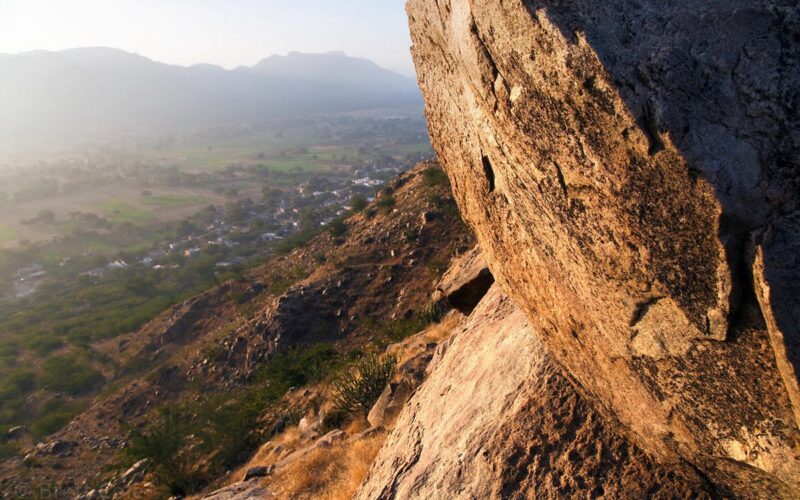November 08, 2023 – In a significant move to safeguard the ecological integrity of the Aravalli range, authorities have launched a comprehensive plan aimed at preserving a vital 15-kilometer stretch from the Bandhwari landfill to Damdama Lake in Gurgaon. This ambitious undertaking, orchestrated in collaboration with the forest department, district administration, Gurugram Metropolitan Development Authority (GMDA), and the Municipal Corporation of Gurugram (MCG), has multifaceted objectives, including the creation of a dedicated leopard park in Behrampur village.
At the heart of this visionary project is the establishment of a lush 15-kilometer jungle trail linking the Bandhwari landfill to Damdama Lake. This initiative is not only geared toward conserving the region’s rich biodiversity but also addressing the growing encroachment by private landowners who often flout construction regulations. Inspired by the success of the Jhalana Leopard Safari Park in Jaipur, the introduction of a leopard park in Gurgaon as part of this endeavor aims to curtail incidents of leopards venturing into urban areas. Furthermore, GMDA is gearing up to conduct a feasibility study for the potential inclusion of a leopard safari within the park, further enhancing its appeal.
The pressing need for such an initiative has become evident in the wake of several instances of human-wildlife conflicts in recent years. These include the tragic lynching of a leopard in Mandawar in 2016 and multiple hit-and-run accidents that have claimed the lives of 12 leopards over a 15-year period.
To lay the foundation for this transformational project, an organization will be commissioned to conduct an exhaustive study of the Aravallis. The resulting insights will be presented to the Aravali Rejuvenation Board, spearheaded by the deputy commissioner, which is tasked with protecting the Aravalli hills from threats like mining and environmental degradation.
The proposed leopard conservation zone is designed to encompass vital amenities such as watering holes and solar pumps for a sustainable water supply. State-of-the-art camera traps will be deployed to monitor wildlife activity, while indigenous grasslands will be nurtured to support local flora and fauna. Furthermore, the project envisions the creation of a watchtower and an interpretation center to enrich the visitor experience.
To glean valuable insights and inspiration for the Gurgaon project, GMDA officials are planning a visit to the Jhalana leopard park in November. This educational excursion will see the participation of representatives from various government departments and development authorities. GMDA’s overarching objective is to promote regulated eco-tourism and wildlife awareness while preserving the natural habitat. Engaging the local community in the conservation of indigenous flora and fauna is expected to alleviate human-animal conflicts and create employment opportunities.
Leopards in the region have historically roamed between the Aravallis in Gurgaon and Faridabad, the Asola Bhatti Wildlife Sanctuary in Delhi, and the Sariska Tiger Reserve in Rajasthan. However, rampant urbanization in these areas has severely disrupted their natural habitats, leading to an upsurge in conflicts between humans and leopards.
The frequency of confirmed leopard sightings in Gurgaon and its neighboring districts has been steadily increasing in recent years. In 2022 alone, five confirmed sightings were reported, compared to two each in 2020 and 2021. This underscores the urgent need for initiatives that promote coexistence and conservation, ensuring that these magnificent creatures continue to thrive in harmony with their human counterparts.
